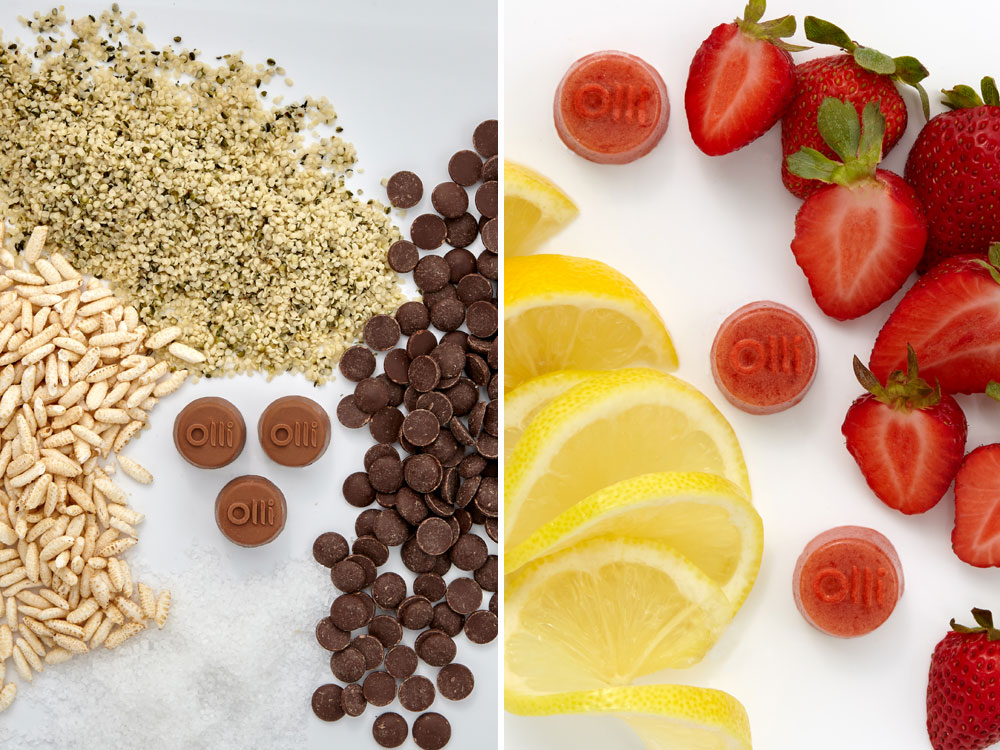You are here
Home 🌿 Cannabis Technology News 🌿 Cannabis edibles preview: What to expect come mid-December 🌿Cannabis edibles preview: What to expect come mid-December

Edibles are on the way.
The 60-day Health Canada review period for cannabis edibles, extracts and topical products began counting down after the second wave of cannabis legalization across Canada came into effect Oct. 17.
With that review period set to end in mid-December, it won’t be long now before consumers can purchase and try all the new cannabis products licensed retailers are set to offer.
The Toronto Sun spoke with Sarah Gillin, COO of Etobicoke-based cannabis producer Olli Brands about what they have in store for customers.
“Olli is planning on launching with a strawberry real fruit chew, a butter cookie, a hemp crunch chocolate and five specialty tea blends — melo green, vanilla black, misty mint, sweet chamomile and my personal favourite, the berry bliss,” Gillan said, adding, “They will be offered in a variety of dosing options with CBD being featured prominently in almost all of them.”

This combo photo (top) shows Olli brands Butter Cookie edible and (bottom) their Misty Mint cannabis tea. Supplied
Gillan explained Olli employs Adrian Niman, a Michelin trained executive chef from The Food Dudes, to help develop and hand prepare the company’s edible products.
Olli will also be providing specialty cannabis teas. Gillan says Richard Guzauskas, Olli’s in-house “tea sommelier,” helps to internationally source the ingredients.
The “Sweet Chamomile Herbal Tea” is described on Olli’s website as a “Sweet and relaxing with an apple-honey aroma, this blend will lull you into calm.”

Canopy Growth Edibles and Beverages ‘Sneak Peek’ Tastings and Tours Beverages.
Canopy Growth’s Tweed Inc. unveiled its line of 13 expected cannabis-infused beverages in late October. The low dosage “distilled cannabis” beverages are geared towards being consumed as a social beverage — with 10 designed to provide you with 2.5 mg of THC (Health Canada permits 10 mg per package).
Aurora Cannabis Inc., a Canadian owned licensed producer of medical and consumer cannabis gave eager edible consumers a sneak peek at a line of vapes they are working on last month as well.
They will come in three formats: a disposable vape pen, premium vape pen pods, and a pen with a universal cartridge system equipped with a rechargeable battery. They will be available for purchase on both the medical and consumer cannabis markets.
It’s worth noting, however, the U.S. Center for Disease Control identified vitamin E acetate as a “chemical of concern” among e-cigarette and vape users.
As of Nov. 20, 2019, the CDC stated there have been “2,290 cases of e-cigarette, or vaping product use” associated with lung injuries. The CDC recommends “people should not use THC-containing e-cigarette or vaping products, particularly from informal sources like friends, or family, or in-person or online dealers.”
Meanwhile, a June 2019 report by Deloitte titled “Nurturing new growth: Canada gets ready for Cannabis 2.0” estimated the size of the edible and alternative cannabis product market could be “worth more than $2.5 billion a year and generate higher profits for retailers than cannabis products that are already legal.”
“The edibles market alone is estimated to be worth at least $1.6 billion a year in Canada, with cannabis-infused beverages adding a further $529 million,” said Jennifer Lee, a partner and Deloitte Canada’s Cannabis National Leader.
Given the estimated size of the market, “It was not an easy choice,” Gillan said of choosing which edibles and alternative cannabis products to produce.
The review period has generally been frustrating for consumers.
Gillan said the 60 days has been “inconvenient” but also “necessary” to ensure ” the safety of consumers.
However, delays caused by the review period coupled with the Province’s retail lottery system caused fear amongst many cannabis producers in the industry, Gillan explained.
“Such delays may drive consumers to the black market where products are inconsistent, the quality unknown and the risks of consumption higher,” she said.
The Ford-led Ontario government managed to open a meagre 24 brick and mortar stores since legalization.
However, prior to the second wave of cannabis legalization, the provincial government through the Ontario Cannabis Store began taking steps to increase “private sector participation in the delivery of recreational cannabis to stores across Ontario.”
420 Intel is Your Source for Marijuana News
420 Intel Canada is your leading news source for the Canadian cannabis industry. Get the latest updates on Canadian cannabis stocks and developments on how Canada continues to be a major player in the worldwide recreational and medical cannabis industry.
420 Intel Canada is the Canadian Industry news outlet that will keep you updated on how these Canadian developments in recreational and medical marijuana will impact the country and the world. Our commitment is to bring you the most important cannabis news stories from across Canada every day of the week.
Marijuana industry news is a constant endeavor with new developments each day. For marijuana news across the True North, 420 Intel Canada promises to bring you quality, Canadian, cannabis industry news.
You can get 420 Intel news delivered directly to your inbox by signing up for our daily marijuana news, ensuring you’re always kept up to date on the ever-changing cannabis industry. To stay even better informed about marijuana legalization news follow us on Twitter, Facebook and LinkedIn.




